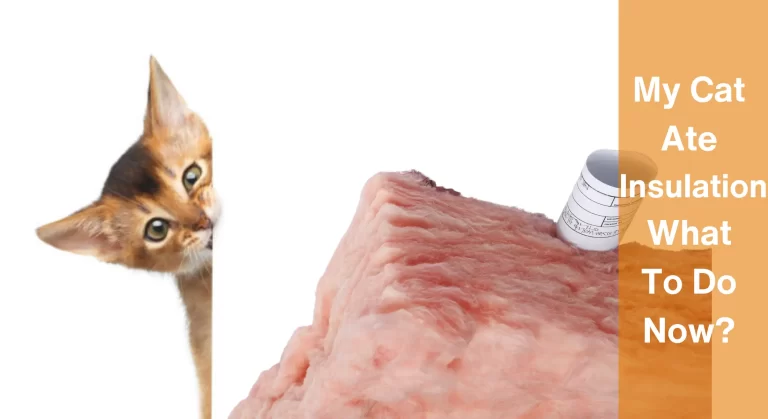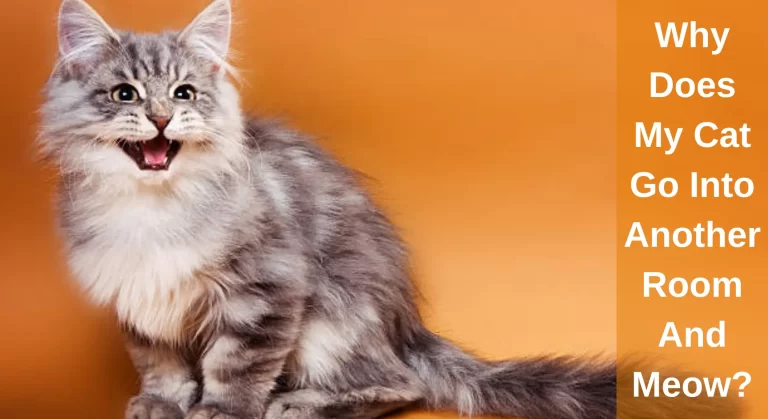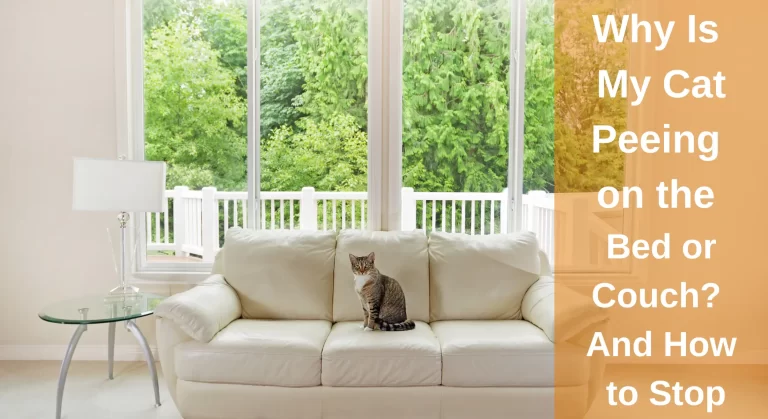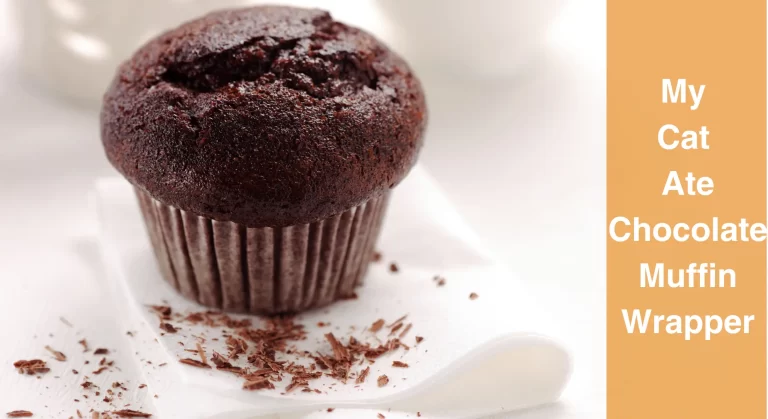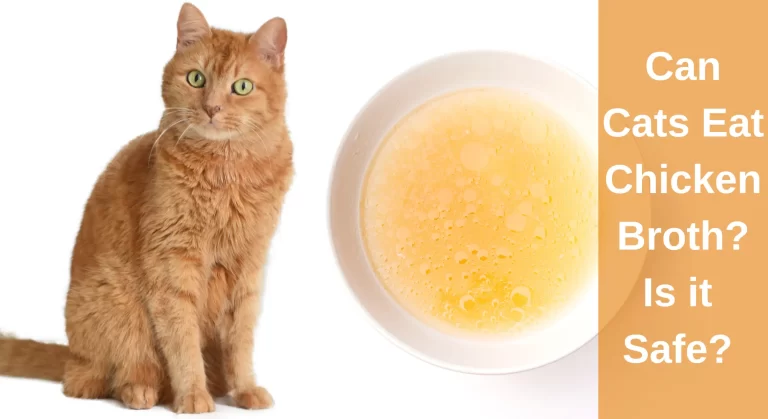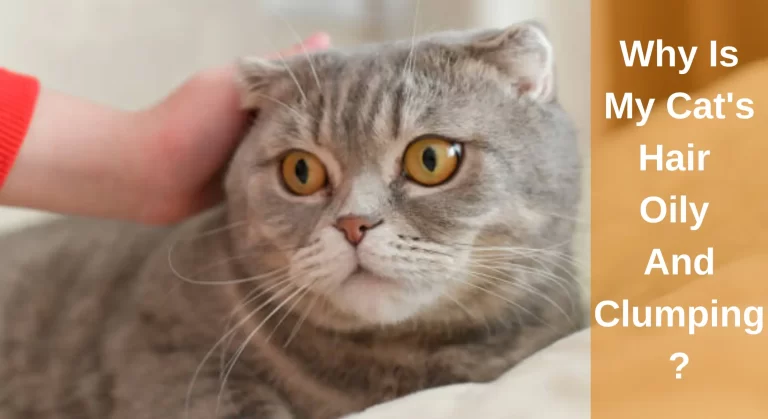My Cat is Not Eating Much But Acting Normal Why? All You Need To Know
The amount of food your pet consumes might be a good sign of how they are feeling. As a result, even if they appear to be usually performing, it is critical to identify when they are not eating much. Remember that your cat cannot converse with you the same way that a person can. They are unable to express to you when anything is wrong. So you must be thinking, what is the reason why a cat is not eating much but acting normal?
If your cat is not eating much but is acting normal, there could be several possible reasons for this. These might include changes in their surroundings, feelings of stress or anxiety, dental issues, problems with their digestive system, infections, or side effects from medication. It’s important to monitor your cat’s behavior and eating habits. If your cat continues to have a poor appetite and has not eaten for a day, you should contact your veterinarian immediately.
The earlier the cause is determined, the quicker the therapy may begin, and your cat will likely start feeling better soon.
As a cat parent, you must learn to recognise subtle changes in their behaviour and respond appropriately. Read on to find out why a cat refuses to eat and what you do about it.
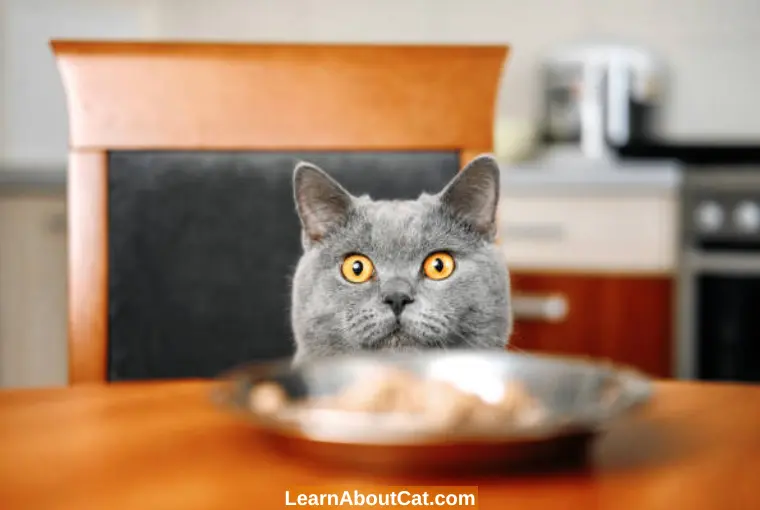
How to Tell that Cat is Not Eating Much?
As a cat owner, it’s important to keep an eye on your feline friend’s eating habits and be able to tell if they are experiencing a loss of appetite. While cats can be finicky eaters at times, noticeable changes in their behaviour and appearance may indicate that they are not consuming enough food. Here are some signs to look out for:
- Decreased Food Intake: If you notice that your cat is leaving behind food in their bowl, it may be an indication that they are not eating as much as they used to. You may also observe that they are taking smaller bites or spending less time on their food dish.
- Weight Loss: One of the most obvious signs of a reduced appetite in cats is weight loss. If you notice that your cat is looking thinner or their ribs are more prominent, it’s time to investigate why they are not eating as much.
- Lack of Enthusiasm: Cats are known for their love of food, so if your cat is turning up their nose at their favourite treats or seems less interested in mealtime, it could be a sign that they are not feeling well or is experiencing a loss of appetite.
- Refusal of Favorite Foods: If your cat suddenly stops eating their favourite food, it may be a red flag that they are experiencing some sort of digestive issue or illness.
Reasons Cat is Not Eating Much But Acting Normal
It may be confusing if your feline seems to be completely healthy yet also doesn’t eat or avoids food. Some felines can’t eat more than others, so you must check on the meal quantity in their dish every time you give them food.
Although if your feline’s hunger still isn’t perfect, it may look healthy. A cat may have stopped eating for various causes, which are mentioned below.
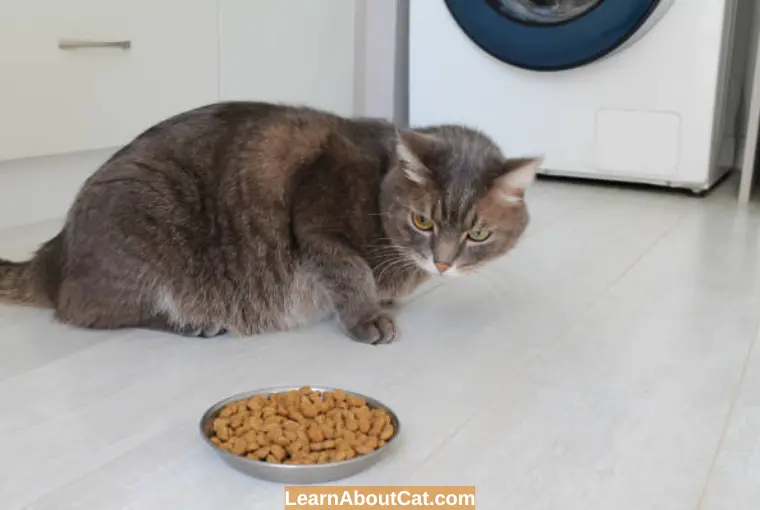
1. Your Cat isn’t Hungry
It might be as simple as not feeling hungry at times. This is frequently caused by overeating, which occurs when you provide them with enough food that they can’t consume it all.
So, it’s important to feed your cat 24-35 pounds of calories each day. If you observe your cat leave large pieces behind, you must try to reduce quantities.
Also Read: Cat Not Eating or Drinking- How Long Can a Cat Survive?
2. Doesn’t like Food
Guess what happens if you eat the same meal every day? We’re going to get bored with it. More importantly, we’re likely to lose interest and hunger for the same old. Our kitties are no exception.
Cats can be finicky eaters, especially if they have been dining on the same fare for an extended period. If your cat suddenly loses interest in its food but otherwise behaves normally, it could simply be that it doesn’t like the taste of its food.
To help your cat regain its appetite, you could try adding a small amount of warmed, low-sodium chicken broth to its food.
However, to prevent health complications in cats, you should avoid chicken broths containing onions, onion powder, chives, or garlic since these ingredients are toxic to felines. If your cat is dealing with pre-existing health conditions, it is highly recommended that you consult with your veterinarian before adjusting its diet.
3. They are Getting Old – Senior Cat
If your feline companion is getting up there in age, you may have noticed that they are not as interested in their food as they used to be. This is because as cats grow older, their senses start to decline. Just like humans, their vision, hearing, and even sense of smell and taste begin to dull.
As a result, your beloved cat may be acting more disoriented or aloof than usual. If they cannot smell or taste their food, they won’t enjoy eating it as much. Just like how you wouldn’t enjoy a delicious cupcake as much if you couldn’t taste it as well, your senior cat may feel the same way.
It is important to recognize that senior cats are more prone to medical conditions. Therefore, if your aging feline is exhibiting additional signs of illness, it is advisable to seek veterinary attention.
However, if your senior cat is simply showing disinterest in food but still drinking water, it is likely attributed to the natural aging process.
To stimulate your elderly cat’s appetite, you can try making their food more enticing. One way is to slightly warm up their wet cat food, which releases a stronger aroma that can make a significant difference for older cats with a weakened sense of smell.
Check Out: Older Cat Not Eating But Drinking: Reasons And How to Help
4. Hot Environment
You may have observed your feline friend eating less during the hot summer months, even though it appears to be behaving normally. Research has shown that during the warmer season, cats, even those who spend most of their time indoors, tend to consume 15% fewer calories than usual.
This is believed to be because cats require less food in the summer as they spend less energy maintaining their body temperature. Despite the decrease in food intake, ensuring that your cat remains hydrated during the summer is crucial.
Make sure to keep an eye on its water bowls and replace the water at least twice a day with fresh, clean water. This will help prevent dehydration, which can lead to serious health issues.
5. Travelling
Motion sickness can be a common issue for cats when traveling, causing them to feel sick and stressed at the same time. This can lead to a loss of appetite, which is a concern for pet owners. If you notice that your cat has stopped eating after a car journey, it’s likely due to motion sickness.
In most cases, a cat’s eating habits should return to normal once they have had time to recover from the journey. However, if you have recently moved to a new place, it may take longer for your cat to adjust and regain their appetite.
In this situation, it’s important to be patient and monitor their behaviour closely. If their appetite does not return after a few days, it’s advisable to consult with your veterinarian.
Also Read: Why Do Cats Pant in Car?
6. Anxiety Or Nervousness
Due to some stress, your cat’s appetite may have dwindled. Has something in your cat’s life changed recently that may be distracting them from their hunger?
- Have you altered your routine in any way?
- Has your shift pattern shifted?
- Is your house more crowded than usual?
- Have you ever rearranged your furniture, causing your cat to become confused?
Your feline will also stop eating due to anxiety or worry. If your feline is frightened or disturbed in particular situations, you must wait so that it’ll get normal and resume eating. It may require medicine to control the situation if she is frequently terrified.
Cats can also be sensitive to the emotional states of their human companions. If you’re feeling stressed or anxious, your cat might react to your change in tone or behaviour, which could lead to a loss of appetite.
Stress can also manifest as physical symptoms in cats, causing them to feel unwell and avoid food. Look for other signs of stress, such as increased hiding, lethargy, and tense body language, or changes in learned behaviours like litter box usage.
If you suspect your cat is stressed, try to identify the source of the stress and remove it if possible. You can also help calm your cat through environmental enrichment, such as providing a quiet space or interactive toys. If your cat’s appetite doesn’t improve, or if they experience frequent extreme fear, speak to your vet about potential medication to help manage the issue.
7. Recent Vaccination
If your cat has recently received any type of vaccination or injection, it is not uncommon for it to experience a sudden change in appetite. Many cats feel discomfort for the first day or 2 after receiving immunizations. This is natural and should disappear away after 2 days.
If your cat’s sickness or lack of appetite persists for more than 2 days after its immunizations, and you notice other symptoms such as an increase in vomiting, diarrhoea, or weight loss over several days, it is important to consult your veterinarian, as it may be experiencing an unusual adverse response to injections.
8. Her Diet Might Be Changed
Cats are creatures of habit, and many acquire feeding preferences. Cats who are used to eating the same thing, pate-style wet cat food or dry biscuits, can often go on strike if their meal is abruptly altered.
9. Hairballs Lodge
It’s possible that your cat isn’t eating much but generally acting because they have hairballs. Hair that builds up in the stomach and doesn’t pass, instead of forming a ball in preparation for evacuation, might make your cat feel bloated.
10. Aching
Cats can stop eating when they are experiencing pain, even if it is mild, and may continue to behave normally. While pain might be a minor source of this condition, it can lead to a big problem.
However, if the pain is severe, your cat may start to withdraw from her usual family interactions, become less engaged in her surroundings, and hide more frequently.
If you notice any of these unusual behaviour patterns, especially if your cat is not getting enough food or water, you should be concerned and seek advice from a veterinarian. They can help identify the source of your cat’s pain and recommend appropriate treatment to help your cat feel better.
Cats who are in pain may quit eating soon. While pain might be a minor source of this condition, it can lead to a big problem. There may be various factors for which they lose their appetite, pain, feline anorexia or hyperoxia.
Major Reasons for Cats Not Eating: Medical Causes
There are a multitude of medical conditions that can cause a loss of appetite in cats. Listing all of them would be impractical, so let’s focus on the most prevalent ones.
1. Digestive Problems
If your cat has stopped eating, it could be due to stomach and digestive ailments such as viral or bacterial infections, inflammation, or issues within the gastrointestinal tract. These conditions can cause pain and discomfort as your cat digests food, leading many cats to stop eating altogether.
To determine if your cat is experiencing intestinal issues, look out for additional symptoms such as weight loss, especially in older cats, vomiting, diarrhoea, or constipation.
Even if your cat is behaving normally, the appearance of these symptoms could indicate a serious gastrointestinal condition.
If your cat appears lethargic and weak and does not eat, this could also be a sign of a gastrointestinal problem. It is important to take your cat to the vet for a proper diagnosis and treatment.
Checkout: Why Is My Cat Throwing Up Food But Acting Normal?
2. Oral-Dental Problems
Dental problems are among one of the most common reasons for a loss of appetite in cats. Cats suffering from mild or chronic dental problems may appear normal till it comes time for meals. They may lack desire for food, particularly if you feed them dry food only.
The act of biting and chewing can be uncomfortable, prompting your cat to refuse food altogether. Moist food may be preferred by cats suffering from dental problems.
There are various dental conditions that cats can develop, with gingivitis being the most common and mild one. This condition involves inflammation of the gums surrounding the teeth. To prevent such diseases from arising, cats require regular dental care, such as brushing their teeth at least a couple of times a week.
If left untreated, gingivitis can progress into a more severe dental issue called periodontitis, which can be extremely painful. Periodontitis can cause damage to the teeth, tissues, and ligaments, worsening as the disease progresses.
To identify dental diseases in your cat, keep an eye out for other symptoms such as:
- Visible plaque (discolouration of the teeth)
- Drooling
- pawing at the teeth or mouth
- Loose or missing teeth,
- Red, swollen, and bleeding gums,
- Difficulty eating.
If you notice any of these symptoms, take your cat to the vet immediately and inform them of the situation. The vet can clean your cat’s teeth to prevent the disease from progressing and provide pain relief.
You Might Like to Read: Why Do Cats Rub Their Teeth On You?
3. Serious Illness
Often we lose our appetite to eat when we are sick. So, if your cat isn’t eating much, there’s a reasonable probability that something is wrong on the inside.
Serious illnesses such as cancer, liver, renal, or heart disease can cause cats to lose interest in food. If your cat is taking medication to treat any of these conditions, her lack of appetite may be a symptom of the illness. In such cases, her behaviour might otherwise appear completely normal.
However, if your cat seems to be in serious pain and has lost interest in eating, it could be a sign of cancer or other serious illnesses. It is always advisable to take your cat to the vet for regular checkups to ensure she stays in good health.
Some other Diseases:
| Diseases | Explanation |
| Septicemias | Inflammation of the gastrointestinal system due to germs, viruses, parasites, drugs etc. |
| Pancreatitis | The pancreas is affected. |
| Foreign bodies | Pica in the intestines leads to obstructions. |
| Colitis | The membrane of the colon is affected. |
| Cancer | Small bowel lymphoma. |
In case you suspect that your cat may be suffering from a severe illness, it is imperative to expediently seek veterinary care for diagnosis and treatment. Timely medical intervention can significantly impact your feline’s ability to recuperate and restore her appetite.
4. Cat Cold
A cat can lose their appetite if they have a stuffy nose due to a cold, as they may not be able to smell their food. To entice your cat to eat, you could consider purchasing extra special wet cat food.
It’s important to ensure your cat is getting enough food to maintain their strength while they recover. You might also consider heating up your cat’s meal to make it more enticing.
If your cat still refuses to eat or shows any additional signs of illness, such as a fever, lethargy, a runny nose, or watery eyes, it’s important to take her to the veterinarian for diagnosis and treatment.
Find Out: Does My Cat Have Allergies or a Cold? Find Out Here
How To Encourage Your Cat to Eat?
Cats, like other species, only quit food if they face an issue. As a result, to encourage them to eat again, the issue must be addressed initially. By following the bellow tips, you can normalize your cat’s feeding routine:
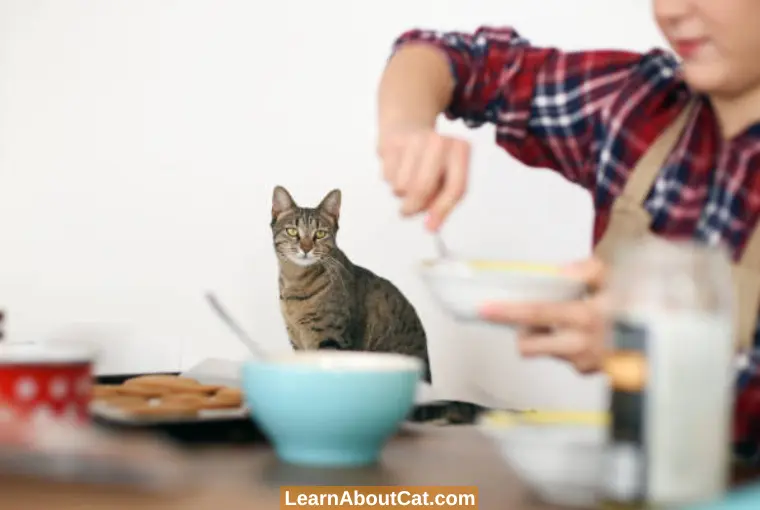
- Give your cat their favourite meal.
- Add food topper.
- Serving warm-up food.
- Mush your cat’s kibble, particularly if your cat has difficulty eating or digesting their meal.
- Add salt-free broth to their meal.
- Give them disease-related or pain killer if they’re facing some health issues.
- Spoon-feed them.
- Give them appetite stimulants.
- Eliminate stress-triggering factors from the environment.
- Change their feeding time.
- Make them comfortable by stroking their head.
Signs of A Healthy Cat
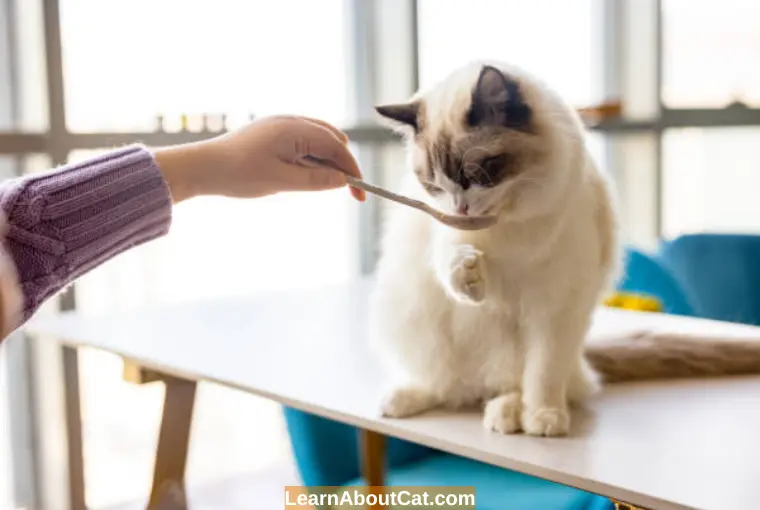
- Coat: It should be gleaming and spotless.
- Eyes must be bright and spotless. You should notify your veterinarian about any discharge.
- Mouth: It should have a pleasant odour. Gums should be pink in colour. Tartar and plaque should be removed from the teeth. There should be no sores or growths on the lips and in the mouth.
- Habits in the litter box: Notify your veterinarian if your cat’s litter box habits alter, such as the frequency or consistency of their pee or faeces.
- Weight: Overweight cats are uncommon among active cats.
- Twitchy Tail: Your cat’s tail might reveal a lot about her personality. A cat’s confidence is expressed when she lifts her tail high.
- Becomes at ease: When cats defend themselves, their backs arch and their ears flatten. Happy cats will walk and sleep in a relaxed manner.
- Grooming is essential: A healthy, happy cat will maintain himself in good shape. Not only that, but he could feel compelled to groom other animals.
- Appetite: Healthy cats like eating and will rub against your legs.
- Purses that like to drive: When cats are content, they purr happily. This usually happens while they are getting their back scratched.
- Cats playing and chatty behaviour: Cats’ playing behaviours may alter as they get older, but a lively attitude is a sign of a happy cat. Cats can be talkative when they’re so glad.
- Cats may nap whenever, anywhere, and for as long as possible. They’re called cat naps, but a content cat will prefer to sleep with someone.
Signs of an Unhealthy Cat
Any deviation from your cat’s usual routine should be noted and addressed as soon as possible with a trip to your veterinarian. Here are a few things to keep an eye out for:
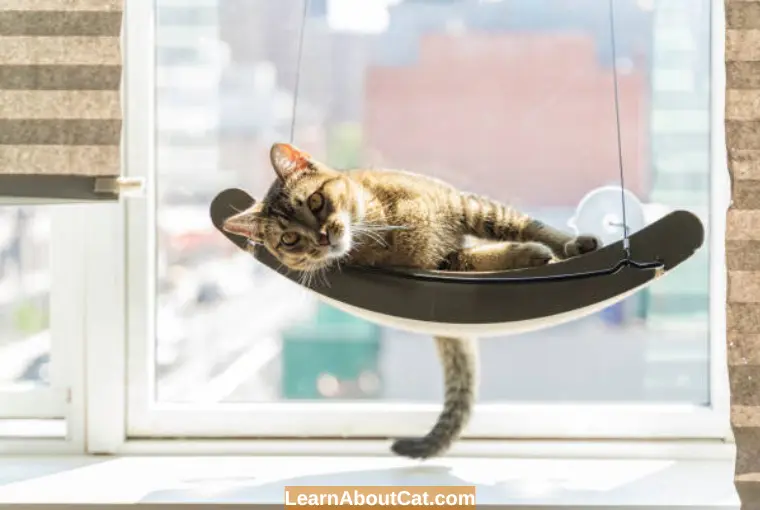
- Changing your diet or drinking less or more water.
- Problems with constipation, diarrhoea, or urination
- Vomiting
- Behavioural issues, e.g. sudden aggression or lethargy.
- Coughing, wheezing, or breathing difficulties.
- Itching or hair loss.
- Lameness.
- Scabs, lumps, and bumps.
- Weight loss.
- Nasal or ocular discharge, sneezing.
- Increased vocalisation.
- Overgrooming might be a behavioural issue, but it could also indicate that your cat is suffering from a skin problem or discomfort.
- Swelling in any part of the body might be an abscess developed from a wound. It may be a tumour.
If you see any of these signs, you should schedule an appointment with your veterinarian.
Treatment of Loss of Appetite
Loss of appetite can be treated in various ways, depending on the underlying cause.
If Your Cat Has A Health Problem, It May Require Antibiotics, a shift in eating habits, surgical procedures that might help in certain situations, anti-nausea or appetite-stimulating medications, fluid treatment, and hospitalisation.
If your veterinarian concludes that your cat is healthy but only fussy about what she eats, follow these guidelines:
- Feed your cat meals with various textures, tastes, and shapes, and reheat any wet foods that have been refrigerated.
- Purchase only as much dry food as your cat will consume in a month, as certain foods can get stale or rotten after a month.
What Should You Feed A Cat Who Refuses To Eat?
Indeed, you have observed that some foods, such as liver or canned tuna, might make your cat eat more. Remember to serve these items in minimal portions. Large doses can damage your pet by generating nutritional deficits or overabundance.
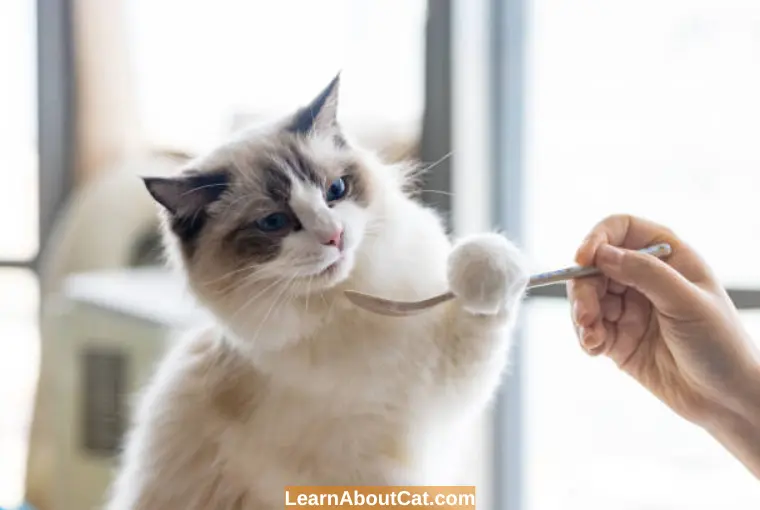
The essential thing is to get your cat to consume canned commercial food instead of human food. By adding fish oil or heating the food, a fried egg, or both, you may be able to entice your picky cat to eat. Remove the food and replenish it on another day if your cat refuses to take that. Your cat will grow ill if the food hardens and becomes stale.
Also, Check Out: Why Is My Cat Throwing Up Food But Acting Normal?
What Can You Do?
You should never force your cat to eat a specific food, even if you’re attempting to persuade him to eat a doctor-recommended diet. Remember that a total rejection of food, whether your cat is sick, terrified, or just plain fussy, can be fatal.
So, do consult your veterinarian if your cat is refusing to eat due to illness to determine the best treatment strategy for you and your cat. This might entail a change in food kind or consistency; for example, when cats are unwell, canned foods may be utilized to get them to eat.
Moreover, vets may prescribe appetite-stimulant medications or suggest syringe-feeding your cat a liquid diet in more complex situations.
Frequently Asked Questions
Is it normal for a cat not to eat for a day?
If your feline does not feed for 24-36 hours without any obvious cause, despite regular water intake, a vet inspection is needed. Because serious, perhaps life-threatening issues might arise if a cat becomes partially or fully anorectic for days or weeks.
Do cats go through phases of not eating?
There is nothing wrong with cats not wanting to eat for a few hours after eating. There are many reasons why an cat might not want to eat right away. It might be stressed, unwell, or it might just not want to eat at all. If your cat doesn’t eat after 24 hours, it’s time to arrange an appointment with the veterinarian.
How long can a cat go with eating very little?
Cats can survive without eating for about two weeks, but they can only survive without drinking for three days. A cat who does not eat for a day or more becomes weaker, so it’s important to contact your veterinarian if you believe that they haven’t eaten.
Do cats eat less when depressed?
It is possible for cats to lose appetite due to a variety of emotional or behavioural reasons too. Some cats stop eating due to depression and anxiety after losing a loved one, whether they were an animal or a human.
Wrap Up!
A cat’s appetite is a critical aspect of its overall health and well-being. If your cat is not eating much but acting normal, it’s important to understand the possible reasons behind their behaviour.
However, if your cat isn’t eating, don’t wait more than 24 hours before visiting the veterinarian. Other symptoms, like vomiting, urinary issues, or an elevated respiration rate, may indicate an emergency, and you should take them to the veterinarian as soon as possible.
Related Posts:
Who is Isabella?
My name is Isabella, and I am a dedicated and knowledgeable cat enthusiast. With years of experience caring for cats and a deep love for felines, I made a mission to help other cat lovers navigate the challenges of cat ownership.

